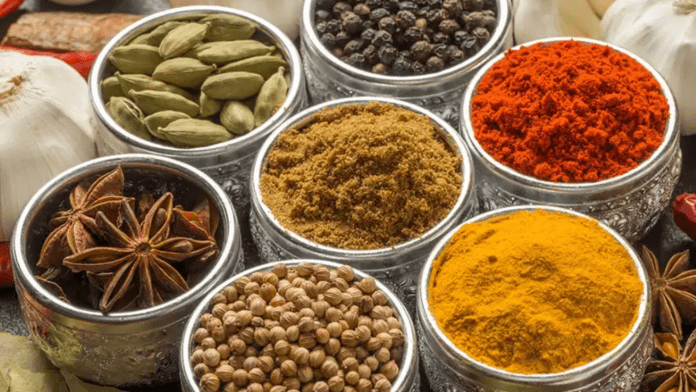According to sources, the government is contemplating the implementation of more stringent regulations governing the spice trade within the country. This move aims to tackle the ongoing rise in spice prices, as well as the escalating costs of various food items, which are adversely affecting consumers. Two government departments are currently in the process of compiling a report on the increased prices, with an action plan anticipated in the near future.
The Inter-Ministerial Committee (IMC) has convened three discussion sessions regarding this issue, and sources suggest that a decision from the Ministry of Consumer Affairs may be imminent. Additionally, there is a possibility that the report will be forwarded to the Ministry of Finance.
As per insider information, the government’s proposed action plan may involve reevaluating duty rates, implementing measures to curb illegal stockpiling, and engaging in discussions with manufacturers and various stakeholders to address the rising price levels.
In recent months, the costs of essential food items like vegetables and spices have experienced unpredictable fluctuations, resulting in challenges for consumers. This situation has arisen due to heightened domestic demand coinciding with constrained supply due to irregular weather conditions.
Read More: Spice prices soar: Consumers struggle as costs surge 20-80%, posing budget woes
The latest official food inflation report for August indicates a rate of 9.94 percent, a decrease from the previous month’s figure of 11.51 percent. It’s worth noting that food inflation contributes significantly, comprising nearly half of the country’s overall consumer price index.
In the meantime, the general domestic consumer inflation showed signs of moderation, settling at 6.83 percent last month. This represented a decline from the 15-month peak it had previously reached, although it remains above the RBI’s designated target range.
Numerous economists hold the view that inflationary forces continue to exert upward pressure on essential food items like vegetables, spices, cereals, pulses, and milk. Additionally, the repercussions of untimely rainfall on vital crop production remain a critical factor to monitor, particularly as the country approaches a delayed festive season.





